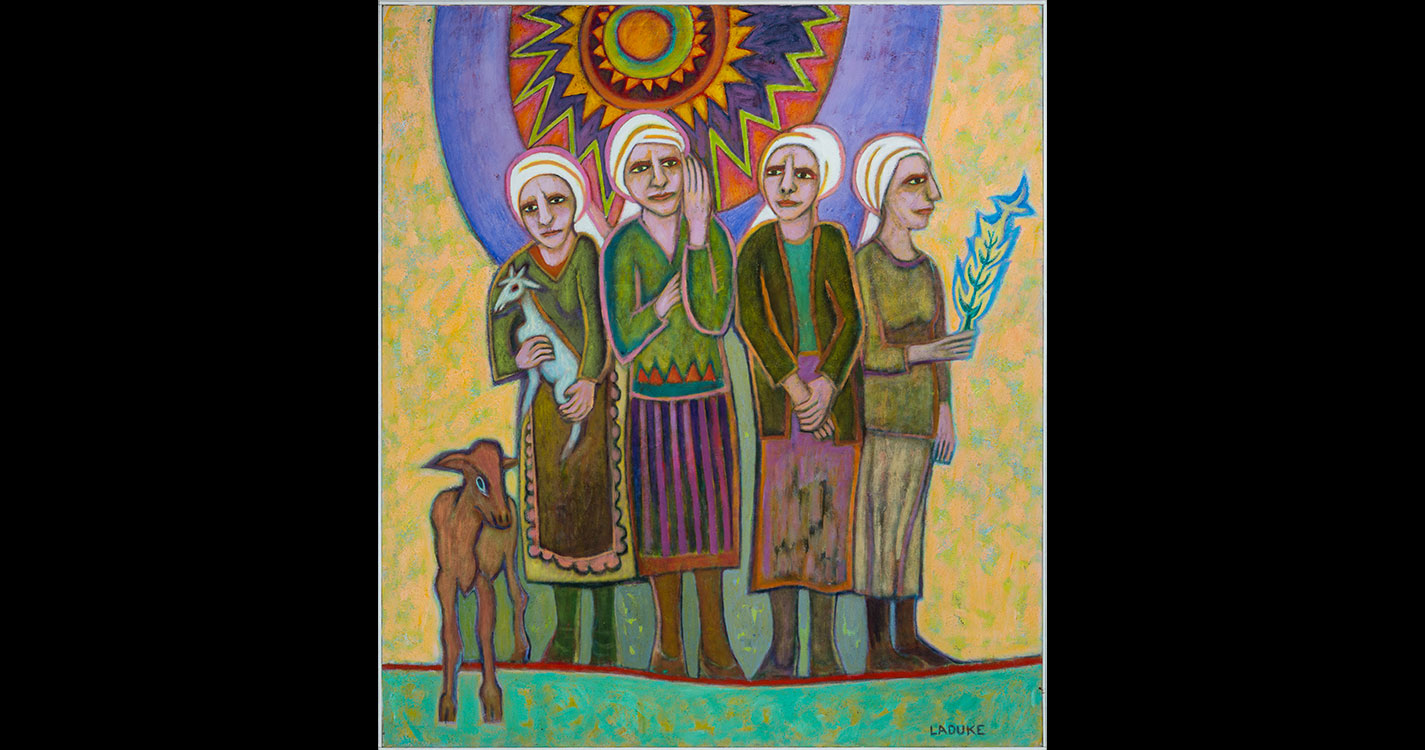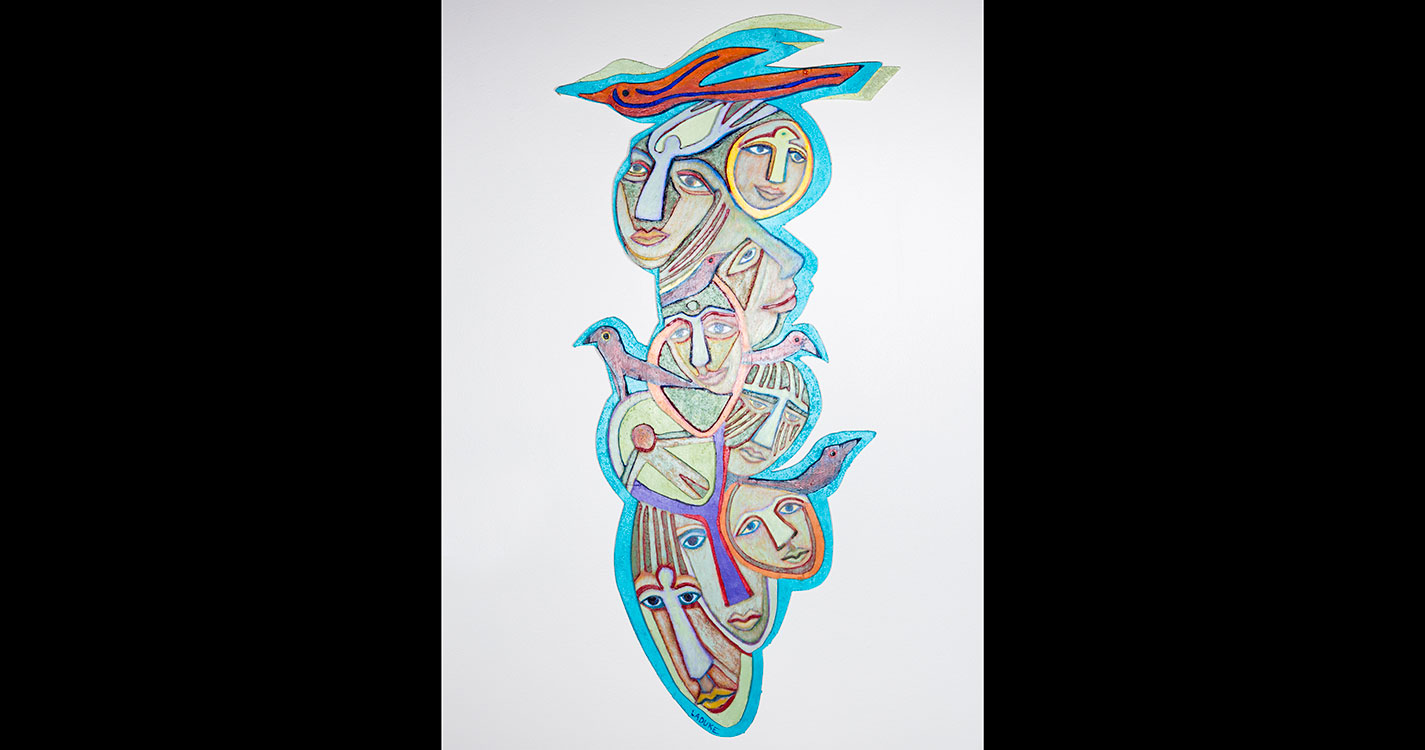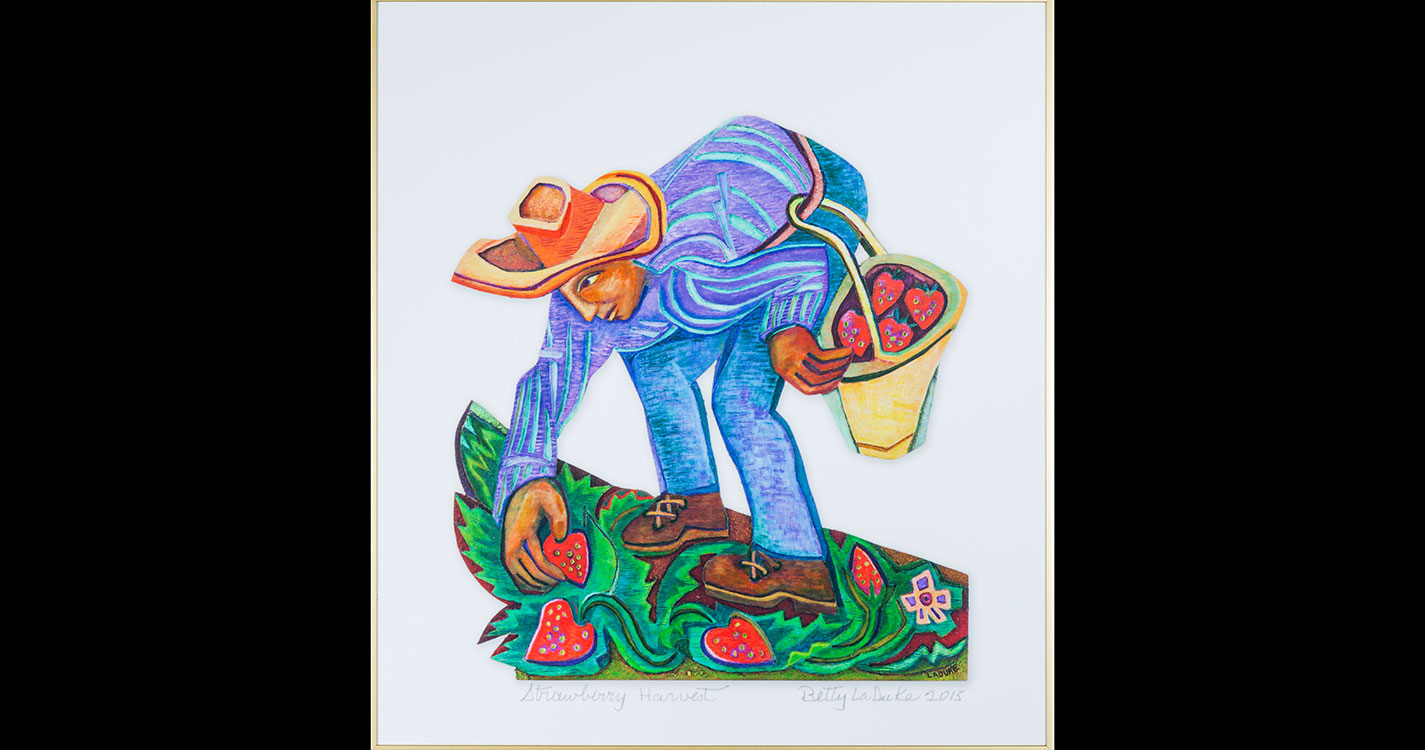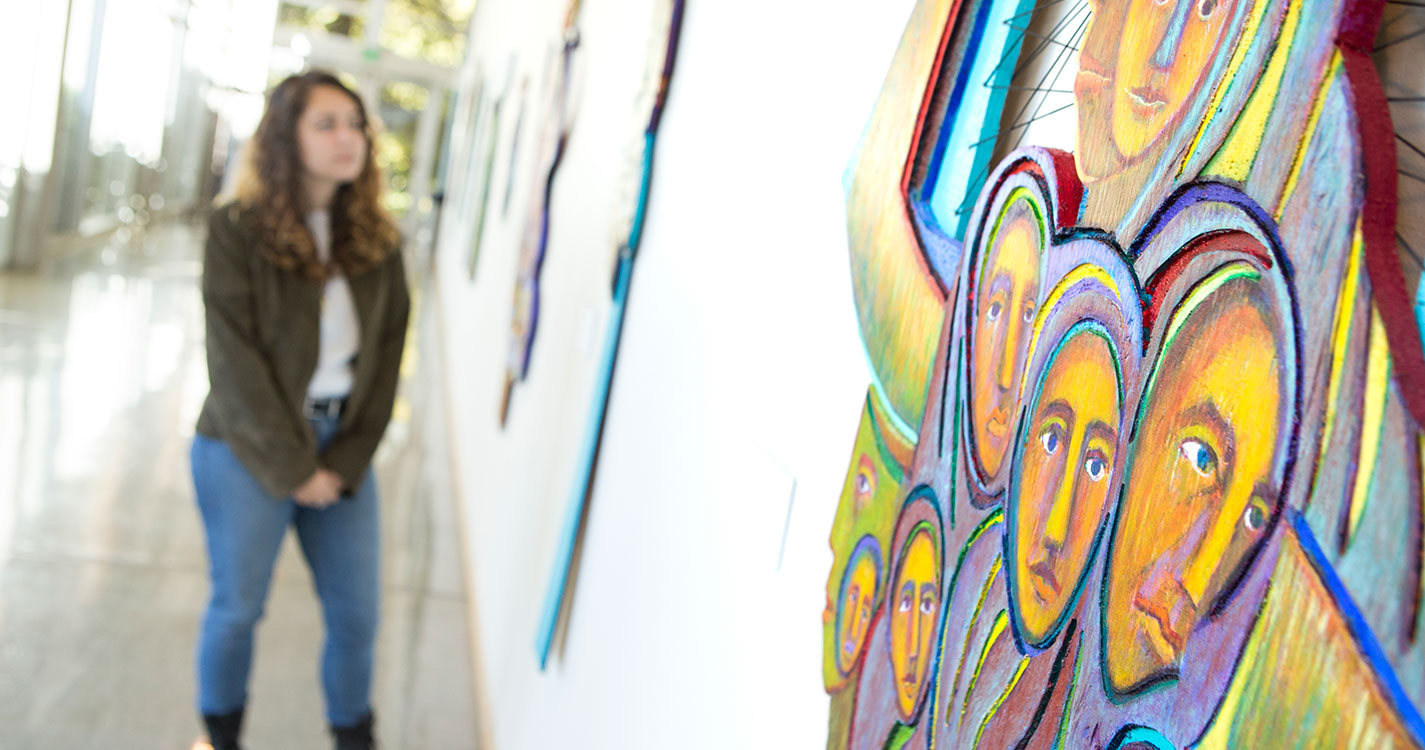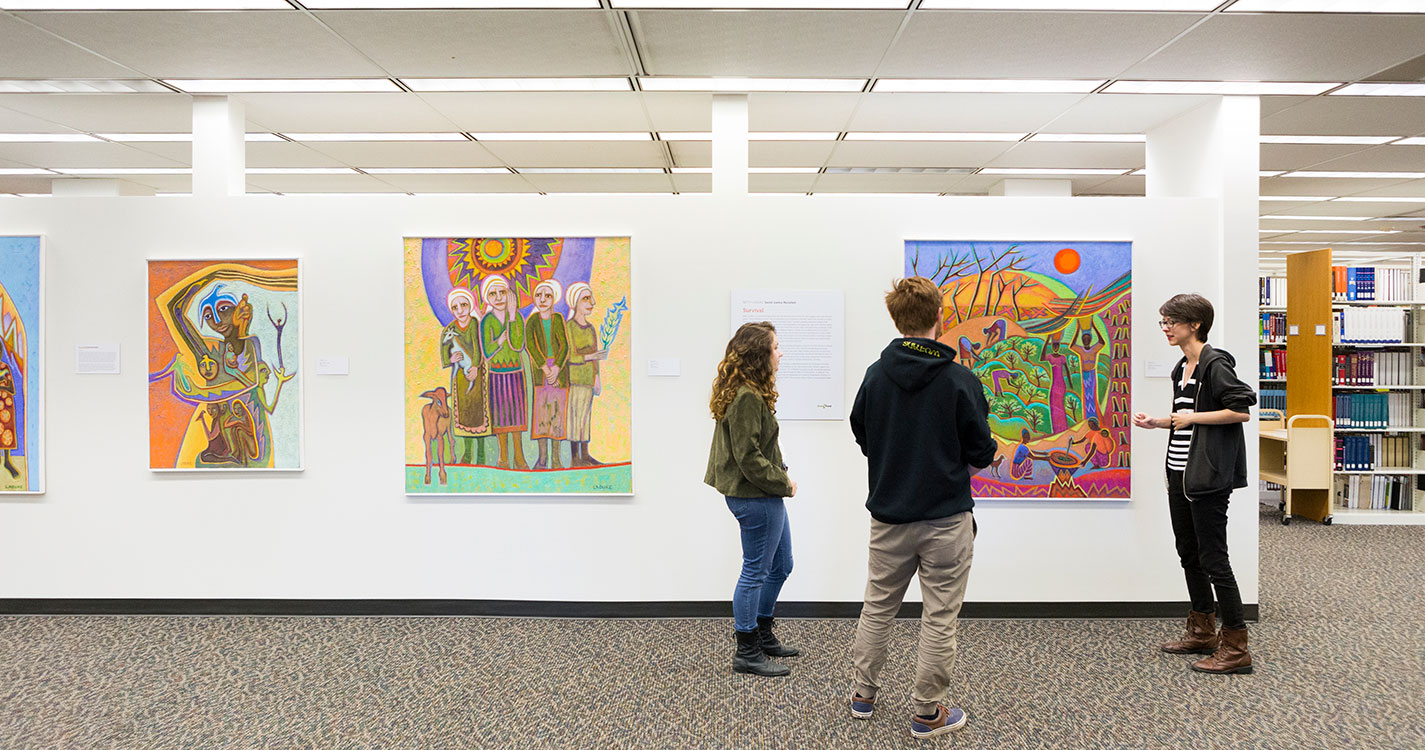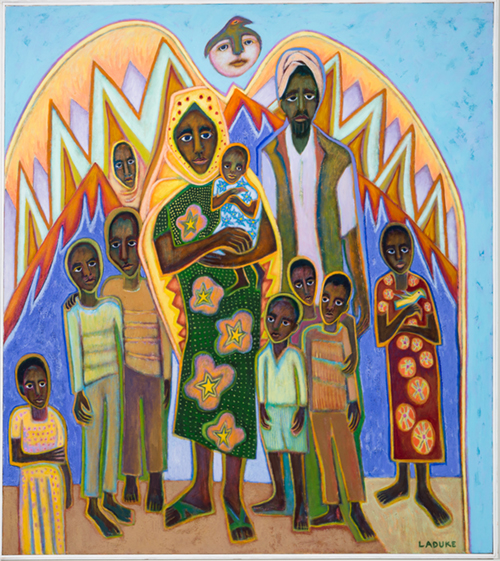As they walk into Goudy Commons dining hall to get lunch, a couple of students pause to examine new artwork on the lobby walls. The colorful prints show farm workers harvesting vegetables from Oregon’s fertile fields — graphically depicting the connection between the food Willamette students eat and the people whose efforts make it possible.
The artworks are part of an exhibition, “Betty LaDuke: Social Justice Revisited,” on display at three Willamette locations this semester. LaDuke, an internationally acclaimed Oregon artist, is also visiting campus this week to meet students in art and colloquium classes, as well as to take part in a public panel discussion tomorrow about art and activism.
Organized by University Archives and Hallie Ford Museum of Art (HFMA), with support from the Sustainability Institute’s Green Fund, the project explores social justice issues related to food production, human migration and sustainability.
“The Green Fund committee funded the project because it brings attention to people who are often forgotten in the food supply chain,” says Tom Farley ‘18, who served on the committee. “Betty LaDuke’s work is very authentic and informed, and it connects with Willamette’s curriculum and mission.”
Art and stories
Ranging from giclee prints to almost life-sized acrylic paintings on cut-out wooden panels, the artworks show farm workers in fields, families in refugee camps overseas and people struggling to cope with the aftermath of war or environmental degradation. LaDuke was inspired by her frequent travels to countries such as Eritrea, Syria, Bosnia and Mexico.
LaDuke’s art has been described as reminiscent of American Regionalism with its use of exaggerated forms to portray working class people. LaDuke also incorporates elements of folk art, such as bright colors, stylized motifs and repeated patterns.
LaDuke forms personal relationships with the people she portrays, often gathering their stories as she captures the daily routines of their lives in her sketchbook. The oral histories of Oregon farm workers appear alongside LaDuke’s sketches and finished artwork in her book “Bountiful Harvest,” which is available from the university library.
Several of LaDuke’s other works are in HFMA’s permanent collection, with some pieces on display in the third floor of the University Center. Her personal papers and sketchbooks are housed in the Pacific Northwest Artists Archives, a collaborative project of the Willamette University Archives and the Hallie Ford Museum of Art.
“Betty LaDuke has a long history of using the visual arts as a vehicle for social change,” says University Archivist Mary McRobinson. “She immerses herself into cultures, going into villages and fields to give voice to people who are often marginalized. As she says, her images ‘bridge people as well as continents. We are one.’”
Exhibit-related events
Public panel discussion
- Social Justice through Art, Advocacy and Activism: A Conversation with Artist Betty LaDuke and Guests
- Tuesday, Oct. 10, 2017, 4:30–6 p.m.
- Ford Hall Theatre
- Free and open to the public, general seating
- At this panel discussion exploring the roles art and activism play in raising awareness, creating social change, and advocating for justice, topics will include human rights, sustainability and immigration within a local, national and international context, with a focus on current events such as Standing Rock and DACA. Betty LaDuke will present an artist’s talk followed by a panel discussion with Native hip hop artist Scott Kalama aka Blue Flamez and president of Willamette's Native and Indigenous Student Union, Alexus Uentillie ’19.
Exhibits
- “Bountiful Harvest,” in Goudy Commons, celebrates the farmers and farm workers of Oregon’s Rogue Valley.
- “Border Crossings” in the Music Center’s Rogers Gallery captures the fear, anxiety and hope of people who have left their homes for another country.
- “Survival” on the first floor of Hatfield Library addresses forced migration, war and environmental degradation.
- On the second floor of the library is a display of LaDuke photographs and sketchbooks housed in the university archives, as well as a documentary video.
Podcast
- Student Alexus Uentillie, Archivist Mary McRobinson and Hallie Ford Museum of Art Curator Jonathan Bucci discuss Betty LaDuke’s visit to Willamette University’s campus in this KMUZ “Worldviews Wednesday” segment, hosted by civic communication and media professor Catalina de Onis.


